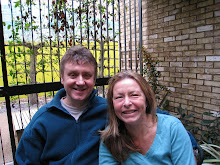I read a BBC article this week which was a report on an interview given by Philip Rosedale, founder of Second Life virtual world, in which he was asked what his technology dreams and predictions were. His response centred on electricity and the changes which will have to be made in moving to a more distributed model of power generation if the world is to reduce its reliance on fossil fuels. This in a week where we have seen more power cuts than usual even in Asmara (we don't know if this is policy to reduce oil consumption at Eritrea's only power station but it could be).
In a way it's good to be part of a shift to Solar Power in my (minor) participation in the Rural Schools' Solar Power Project but it represents a lot of work for quite a number of people just to get a few panels out to where they are needed. The BBC article indirectly raises a lot of questions for the poorer countries in Africa, particularly those who don't have a great relationship with the world's biggest technology country, the US.
So here's the fantasy. Here, in Eritrea, there are two observations that you can make - the sun shines a lot and the country cannot afford to buy much oil on the world markets no matter what the prevailing price is. It is also true that large numbers of Eritrea's people are off the grid in any case. So wouldn't it be great if a mega-rich (fortune from technology?) philanthropist were to step in and fund the Solar Power Revolution in Eritrea? While we're at it we could introduce other technologies in a big way - Geographical Information Systems to find the optimum sites for larger installations (the intersection of maximum hours of sunshine, land unused for anything else and proximity to population centres). Internet centres and libraries throughout the country.
The reality? This region is perceived as being too unstable for investment of such enormous magnitude. Eritrea also feels the need to control information and movement of people (just try using a GPS device as a foreigner here) so internet access and the gathering of data will remain difficult. Furthermore countries who owe Eritrea big-time in terms of assistance with previously-arbitrated border disputes and (in the case of UK) in terms of technology removal as unmerited war reparation will continue to fail to provide official support.
But we can all dream.
P
Saturday, 15 November 2008
Subscribe to:
Post Comments (Atom)




No comments:
Post a Comment